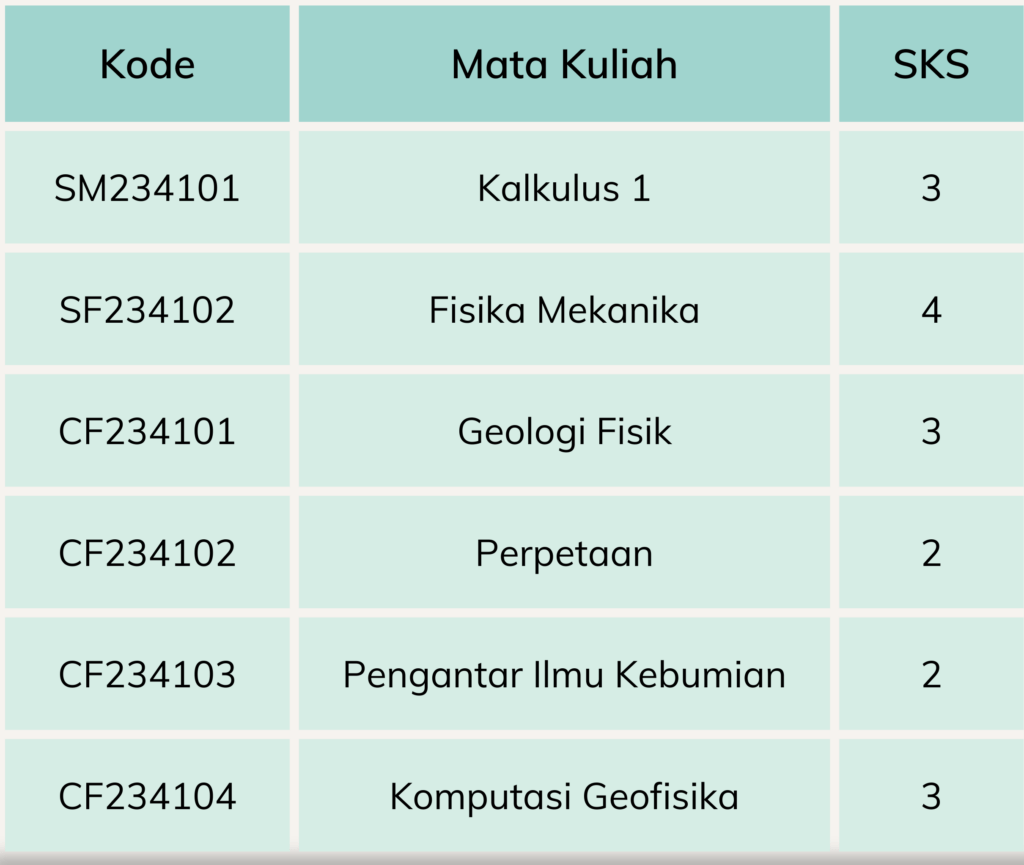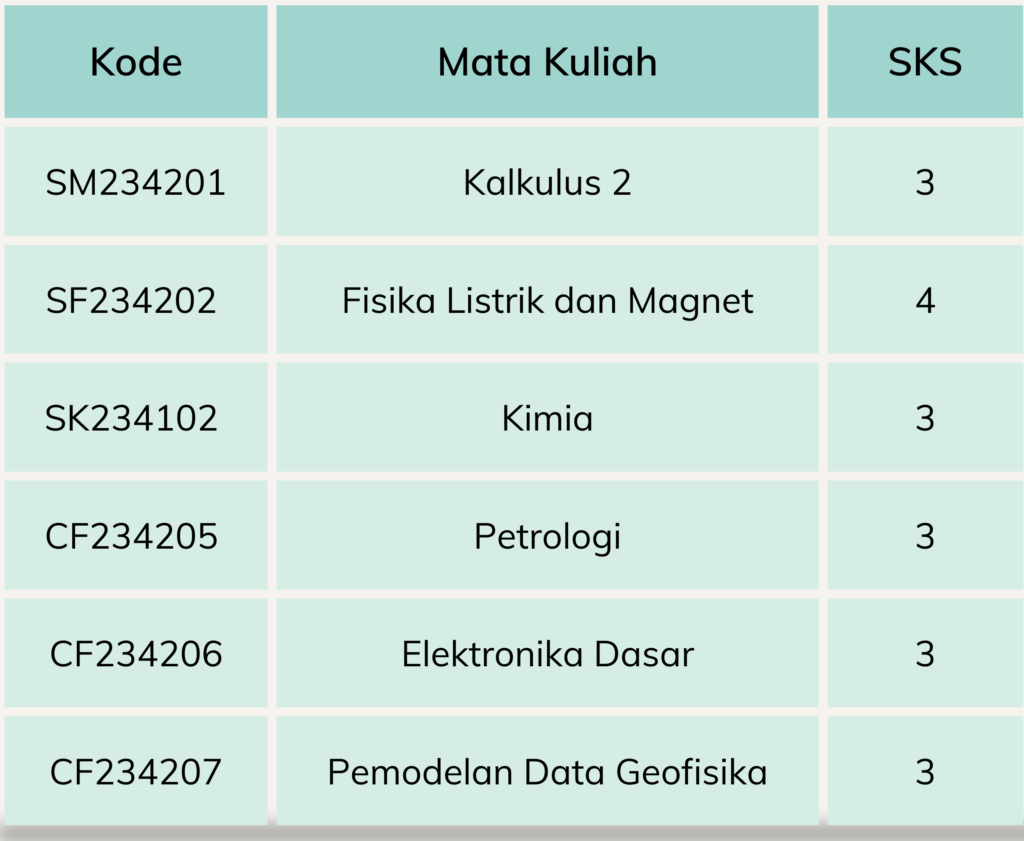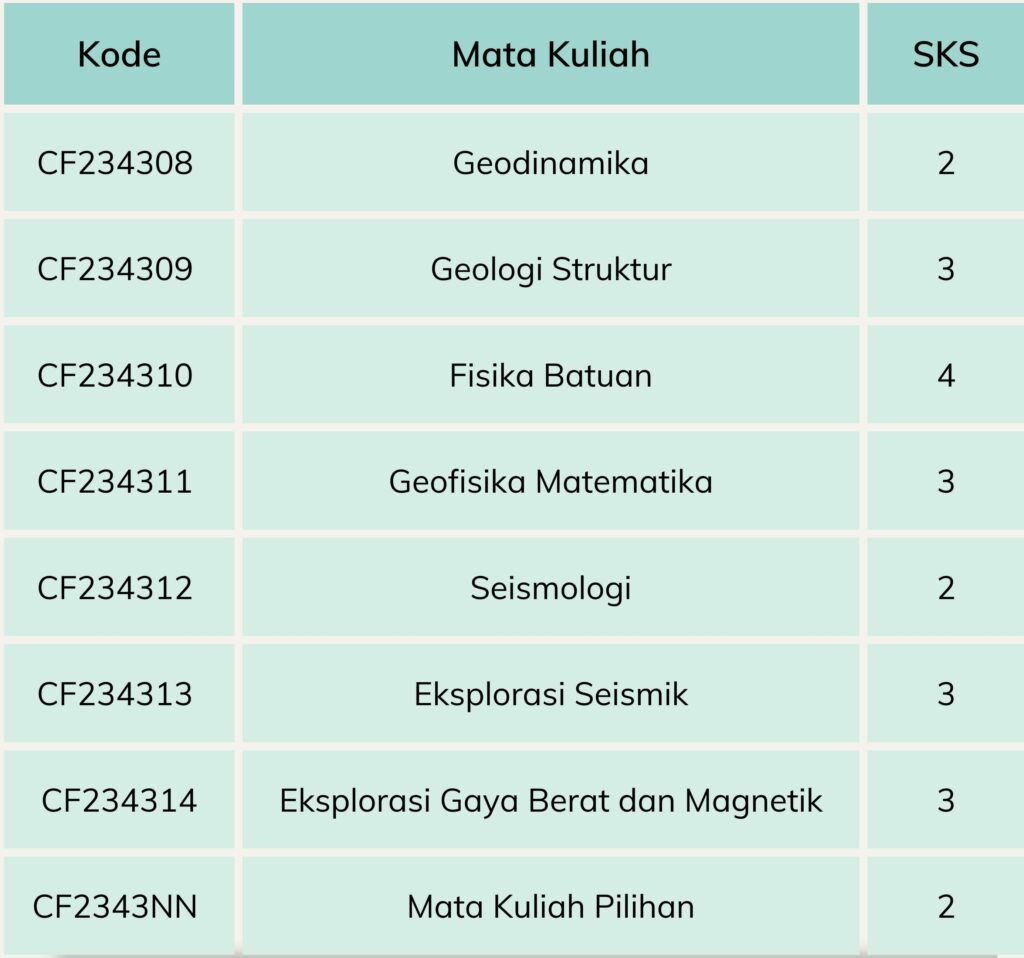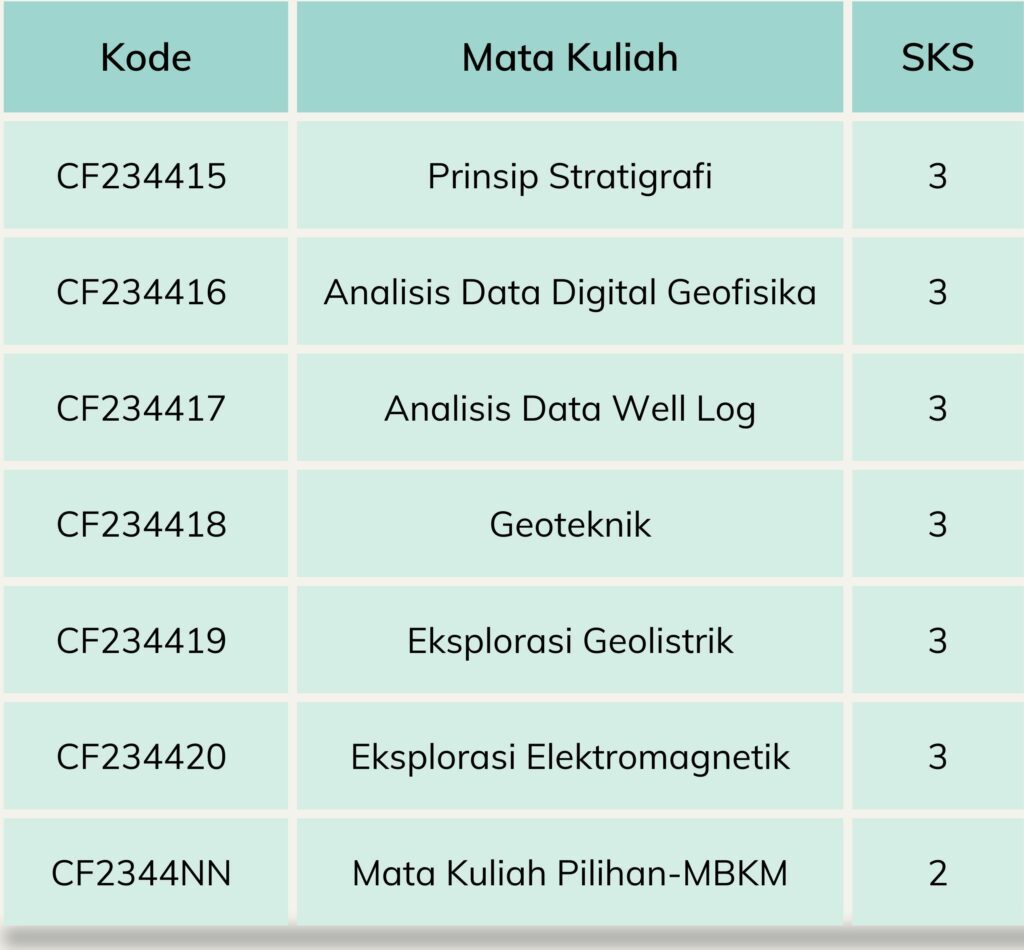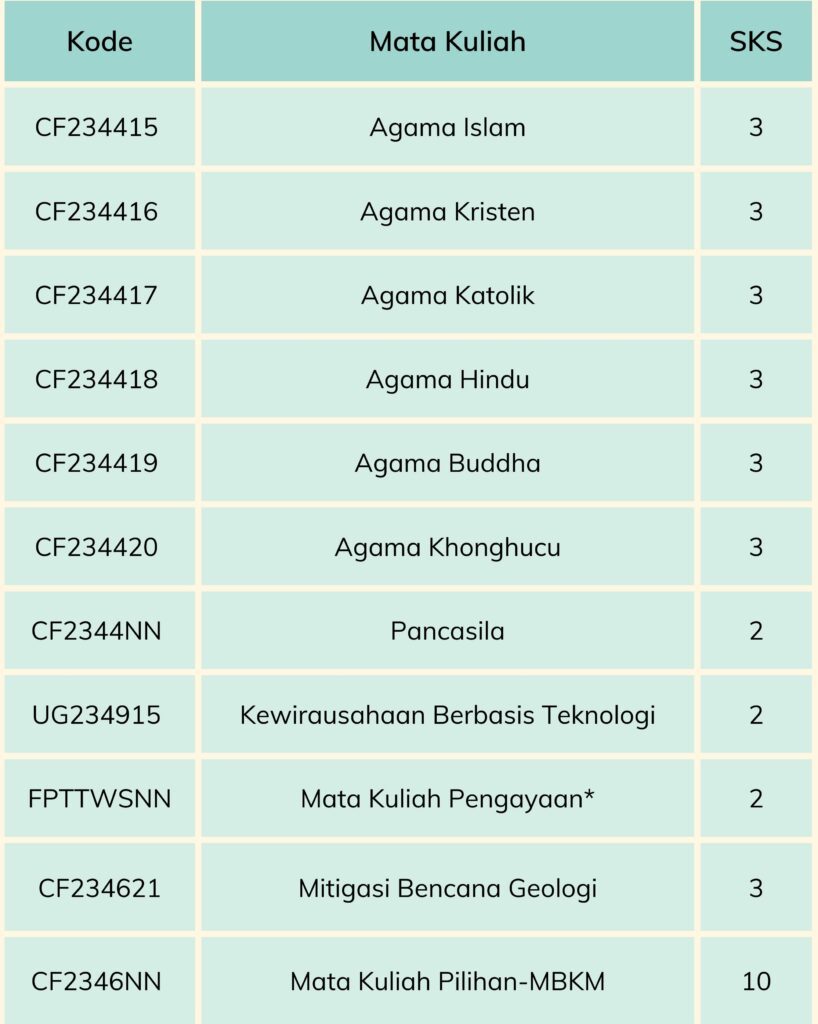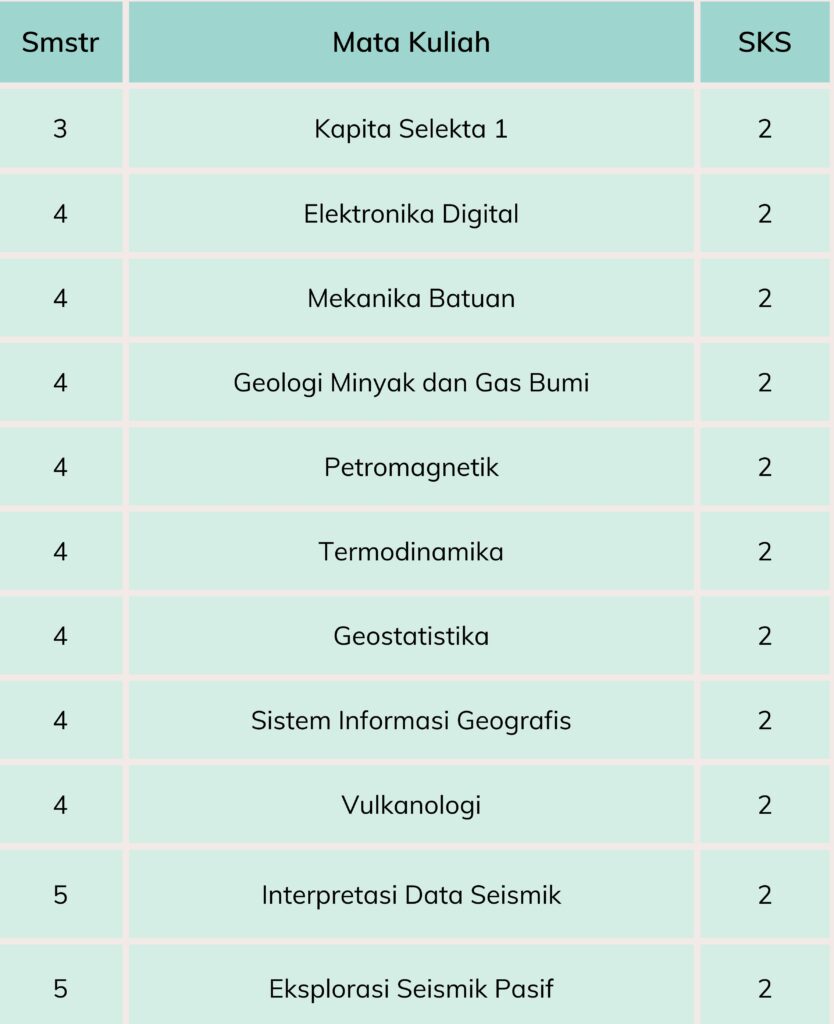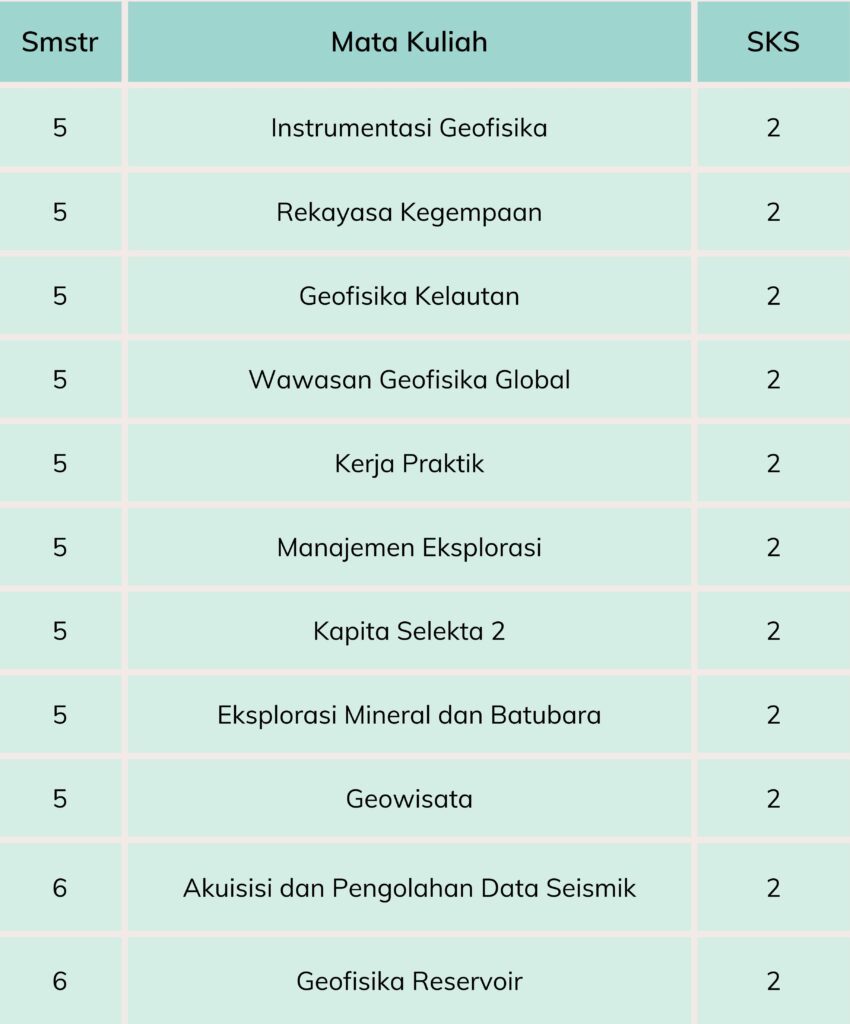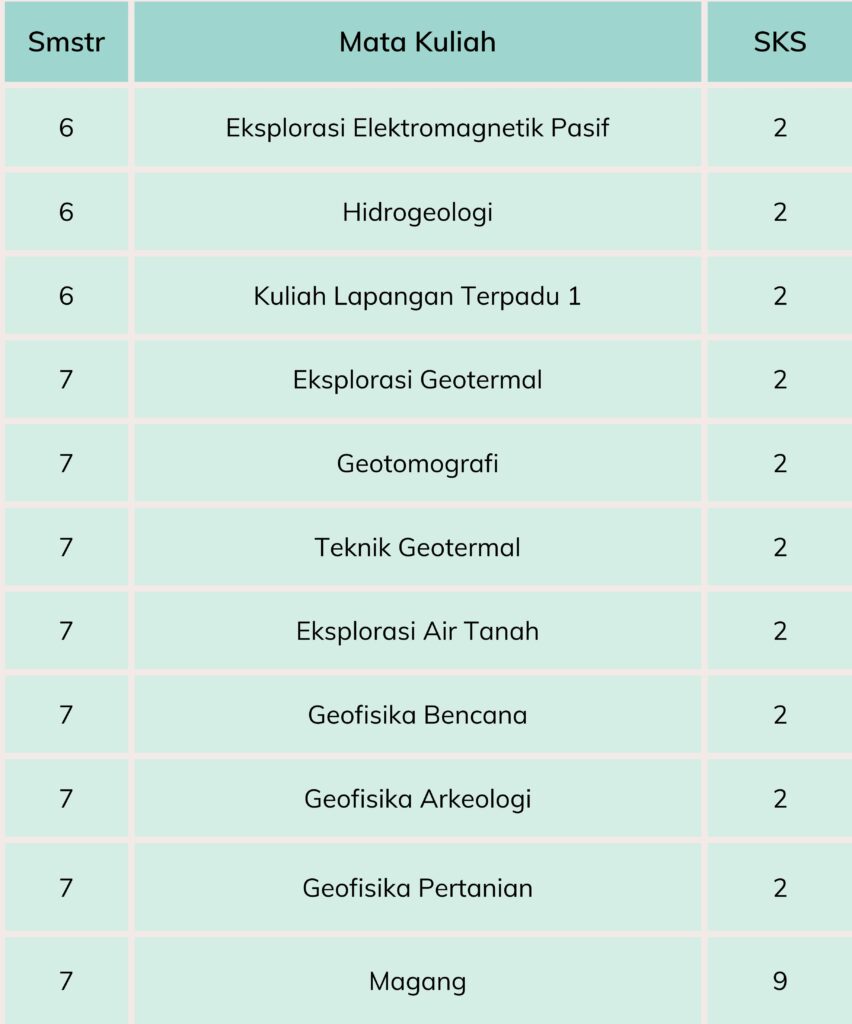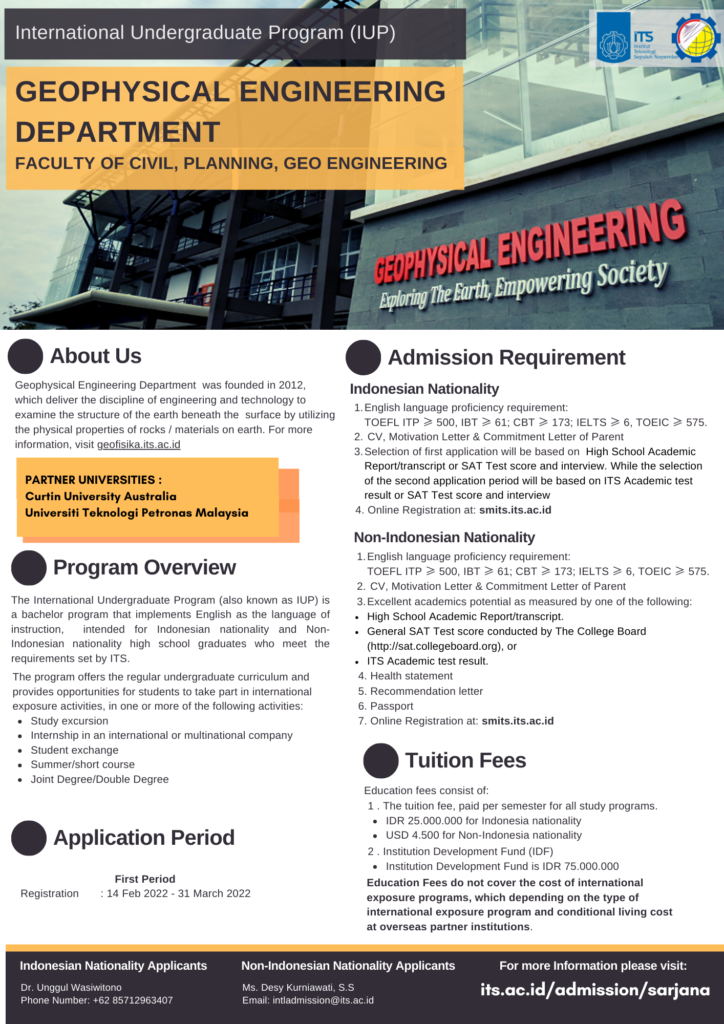Undergraduate Program of Geophysical Engineering ITS
Geophysical Engineering is a part of earth science that applies / utilizes the principles of Physics, Mathematics, and Geology, also supported by instrumentation and computational tools to study phenomena and problems related to solid earth. Fields of study / technology used in Geophysical Engineering include: seismology, geodynamics, seismic exploration, gravity, geomagnetism, geo-electromagnetism, exploration of earth resources (oil and gas, minerals, geothermal, groundwater etc.), mitigation of earth, geotechnical and environmental disasters through engineering approaches to improve the quality of human life.
The main goal of the study is to build a Geophysicist with competent instruments and knowledge in predicting physical properties under the earth’s surface that are associated with hazards, resources, monitoring; reconstructing / imaging the structure of the earth, and predicting the processes that occur.
Course Cyllabus
In accordance with applicable regulations, the Bachelor Study Program is designed to be completed in 8 semesters (4 years) with a total load of 144 credits (semester credit units). The study period (for 8 semesters) is divided into 2 stages, namely the PREPARATION STAGE and UNDERGRADUATE STAGE. The preparatory phase includes semesters 1 and 2 with a total load of 36 credits, while the undergraduate stage covers semester 3 – 8 with a total load of 108 credits.
The full document of cyllabus can be accessed here : Download Here
International Undergraduate Program
The International Undergraduate Program (also known as IUP) is a bachelor program that implements English as the language of instruction. The program offers the regular undergraduate curriculum and provides opportunities for students to take part in international exposure activities, in one or more of the following activities:
- Internship in an international or multinational company
- Student exchange
- Summer/short course
- Joint Degree
